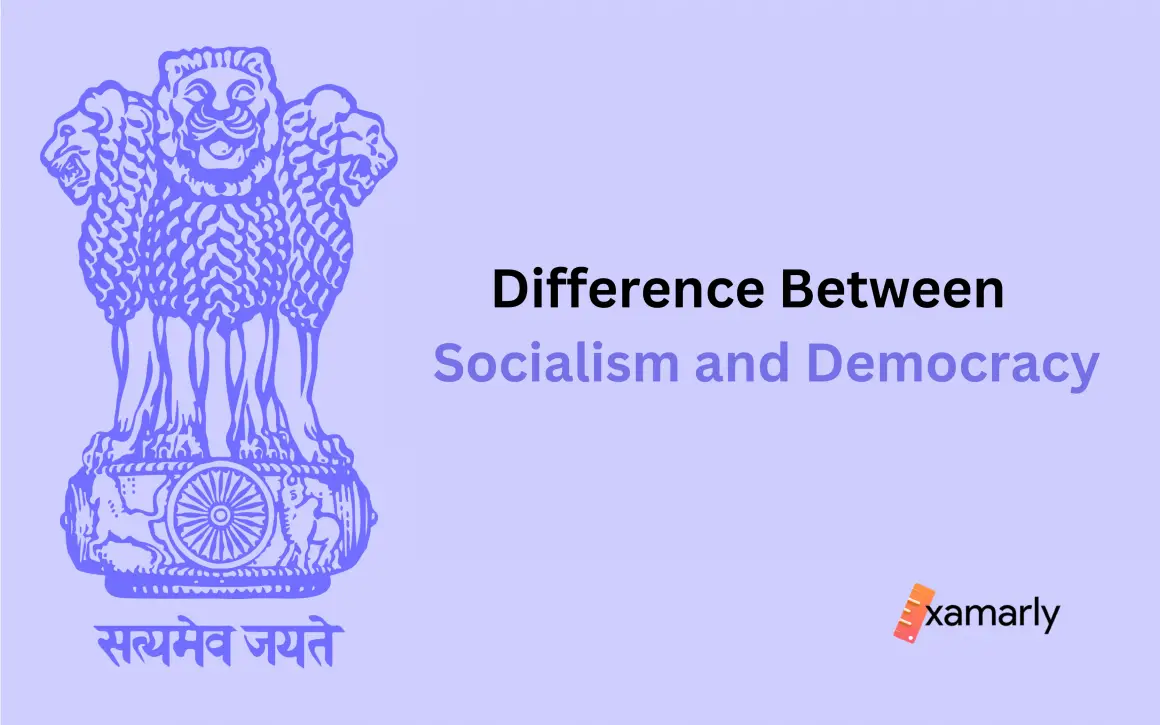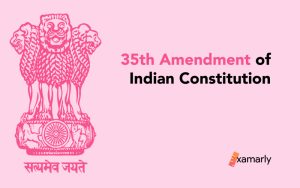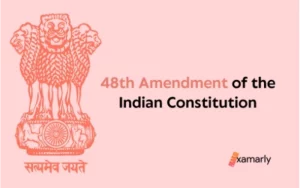An Overview
Before diving deep into the difference between socialism and democracy, let us understand how these concepts are important on both their individual level.
Socialism and democracy are two distinct political ideologies with different philosophies and objectives.
Democracy is a form of government in which power is held by the people, either directly or through elected representatives.
It is characterized by free and fair elections, the rule of law, and the protection of individual rights and freedoms.
What is Socialism?
Socialism is an economic and political ideology that advocates for the collective ownership and control of the means of production and distribution of goods and services.
The goal of socialism is to create a more equal and fair society by reducing economic inequality and ensuring that the benefits of economic growth are shared by all members of society.
Socialism has been implemented in various forms in countries around the world, including in the form of social democracy in countries like Sweden, and in the form of state socialism in countries like the former Soviet Union.
In a socialist system, the government is typically responsible for planning and directing the economy, and may also provide universal access to certain goods and services such as healthcare and education.
One of the main criticisms of socialism is that it can lead to a lack of economic efficiency and innovation, as the government rather than the market, make key economic decisions.
Another critique is that socialism can lead to a lack of political freedom, as the government may exert a great deal of control over citizens’ lives.
However, supporters of socialism argue that it is necessary to address the inequalities created by capitalism and that it can provide a more equitable and sustainable economic system.
It is worth noting that socialism has different variations and interpretations, and the specific characteristics and implications of socialism can vary depending on the specific system and context in which it is implemented.
History Of Socialism
Although it has roots in earlier movements and concepts, socialism began with the 1789 French Revolution and subsequent changes.
Karl Marx and Friedrich Engels wrote the Communist Manifesto in 1847–48, advocating scientific socialism, before the 1848 Revolutions. In the last third of the 19th century, European democratic socialist parties drew from Marxism.
In 1899, the Australian Labor Party became the first elected socialist party when it ruled Queensland for a week.
In the first half of the 20th century, the Soviet Union and Third International communist parties around the world mainly represented socialism in terms of the Soviet model of economic development and the creation of centrally planned economies directed by a state that owns all the means of production, although other trends condemned the lack of democracy.
Herbert Morrison claimed “socialism is what the Labour administration accomplishes” in the UK, whereas Aneurin Bevan said “major streams of economic activity are brought under public supervision” with an economic plan and workers’ democracy.
Some claimed capitalism had ended. Socialist administrations created a mixed economy with partial nationalisations and social welfare.
The New Left, socialists hostile to the Soviet Union and social democracy, emerged in 1968 after the Vietnam War. Cooperatives or workers’ councils were favoured by anarcho-syndicalists and some New Left members.
Socialists also support feminism, environmentalism, and progress. The pink tide of the early 21st century in Latin America promoted 21st-century socialism, including the nationalisation of significant national assets, anti-imperialism, left-wing populism, and rejection of the Washington Consensus and neoliberalism. President Hugo Chávez started it.
Importance Of Socialism
Socialism is important because it aims to create a more equal and fair society by addressing the issue of economic inequality.
It advocates for the collective ownership and control of the means of production, which means that resources and industries that drive a society’s economy would be owned and controlled by the community or the state rather than by private individuals or corporations.
This leads to a more equal distribution of wealth and resources and eliminates the exploitation of workers by capitalists.
Additionally, socialism emphasizes the role of the government in ensuring that the needs of all citizens are met, rather than just the wealthy or powerful.
This can lead to more efficient use of resources and services, as decisions would be made based on the needs of society as a whole.
Furthermore, socialism promotes social and economic justice, as it gives more power to the working class and ensures that their rights and well-being are protected.
In summary, socialism is important because it addresses economic inequality, promotes social and economic justice, and ensures that the government serves the needs of all citizens.
What is Democracy?
Democracy is a form of government in which power is held by the people, either directly or through elected representatives.
The word democracy comes from the Greek words “demos” meaning “people” and “Kratos” meaning “rule.”
The fundamental principle of democracy is the idea that all citizens have an equal say in the decisions that affect their lives.
This is usually achieved through free and fair elections, in which citizens have the right to vote and to run for office, and through a system of checks and balances, in which different branches and levels of government have separate powers and responsibilities.
Democracies are characterized by the rule of law, the protection of individual rights and freedoms, and the existence of a free press and independent judiciary.
There are several types of democracies, including direct democracy in which citizens vote directly on laws and policies, and representative democracy in which citizens elect representatives to make decisions on their behalf.
The most common form of democracy is a representative democracy, like the one in the United States or the United Kingdom.
One of the main criticisms of democracy is that it can be slow to make decisions and can be influenced by special interest groups.
Some argue that democracy can also lead to the tyranny of the majority, in which the rights of minorities are not protected.
However, supporters argue that democracy is the best form of government because it allows citizens to have a say in the decisions that affect their lives and helps to prevent abuse of power.
It is also worth noting that the level of democracy can vary from country to country and that some countries that call themselves democratic may not have fully functioning democratic systems.
History Of Democracy
The ancient Greeks, whom some 18th-century intellectuals thought to be the originators of Western civilization, are often credited with laying the groundwork for democracy.
These people worked to develop a new model for the post-monarchical political organisation by drawing inspiration from these early democratic experiences.
Although the moral grounds these 18th-century democratic revivalists often used are disputed, the extent to which they were successful in making the democratic principles of ancient Greece the dominant political institution for the next 300 years is not.
However, the reawakening of democratic principles and institutions at this pivotal historical juncture radically altered the succeeding centuries and has dominated the worldwide landscape ever since the final remnants of the empire were dismantled at the end of World War II.
To bridge the gap between Hobbes’s’state of nature’ and authoritarianism, modern representative democracies use social contracts’ to protect individuals’ rights, limit the state’s authority, and give citizens a voice through the franchise.
They are defined by the premise of scepticism in the ability of human populations to make a direct judgement about candidates or decisions on issues, despite the fact that they include populations in some level of decision-making.
Importance Of Democracy
Democracy is important because it is a form of government that is built on the principles of freedom, equality, and representation.
It allows citizens to have a say in the decisions that affect their lives and provides a way for them to hold their government accountable. In a democratic society, all citizens have equal rights and the government is obliged to act in the best interests of the people.
Additionally, democracy promotes stability and peace by allowing for peaceful transitions of power and protecting the rights of minority groups.
Furthermore, democracy encourages economic growth and development, as it allows for the free flow of ideas and encourages competition. In summary, democracy is important because it empowers citizens, promotes stability and growth, and ensures that the government serves the needs of all citizens.
You Might Also Like – Difference Between Sociology And Economics
What is the Difference Between Socialism and Democracy?
A central tenet of socialism is the idea that all members of society should share in the wealth created by the system, and that the state or the workers’ council should speak for the people when deciding how the wealth should be distributed and administered.
However, depending on the type of socialism implemented, there can be negative effects on societal equality.
As a result of the lack of or complete disregard for civil liberties under a radical socialist regime, citizens do not have basic rights such as the right to vote or hold public office.
On the other side, democracy is a political system that supports people’s individuality and autonomy. In a democracy, the people have the option of exercising direct rule over the government (direct democracy) or electing representatives to whom they delegate power.
In some democracies, interest groups with enough money to economically exploit other people use their economic power to control and even corrupt the political system to their advantage, making it difficult for economically disadvantaged members of society to effectively participate in political exercises.
Can one civilization accommodate the existence of both of these systems?
Undoubtedly, a combination of both systems can dictate the paths a society takes. For example, a socialist society can also be democratic, and democratic socialist society can also be socialist. There are differing degrees of socialism and democracy.
A society can choose policies that are very socialist or very capitalist, or it can adopt policies that fall somewhere in between. Democracy, dictatorship, and every point in between are all possible political ideologies for a society to choose.
It has been argued that the most desirable economic system and political ideology is one that strikes a good balance between the competing values of individual autonomy and social solidarity.
Summing Up
In conclusion, socialism and democracy are two distinct ideologies with different approaches and principles. While both aim to create a fair and just society, they have distinct differences in their economic and political systems and the role of government and citizens.
FAQs
Q: What is socialism?
A: Socialism is an economic and political system in which the means of production, distribution, and exchange are owned and controlled collectively or by the state, with the goal of achieving greater social and economic equality.
Q: What is democracy?
A: Democracy is a form of government in which the power is held by the people, either directly or through elected representatives. It is characterized by free and fair elections, the protection of individual rights and freedoms, and the rule of law.
Q: How does socialism differ from democracy?
A: Socialism focuses on collective ownership and control of the means of production and distribution, while democracy focuses on the participation of citizens in government decision-making.
While the two concepts are not mutually exclusive, there are different forms of socialism and democracy, and some forms of socialism may not include democratic elements.
Q: Can a socialist country be democratic?
A: Yes, a socialist country can also be democratic. In a democratic socialist system, the means of production and distribution are owned and controlled collectively or by the state, but citizens also have a say in government decision-making through free and fair elections and other democratic mechanisms.
Q: Can a democratic country have socialist policies?
A: Yes, a democratic country can have socialist policies. Examples of this include government-provided healthcare, education, and social services, as well as progressive taxation and workers’ rights. These policies are often aimed at reducing economic inequality and promoting social welfare.






